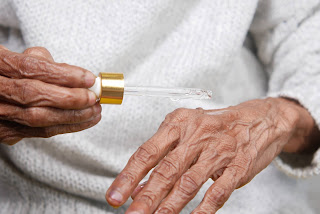How to get rid of dandruff
What is dandruff ?
A typical non-contagious dermatological condition that affects the scalp is dandruff. The skin can become extremely irritating and even painful as white-yellow or grey, oily flakes and scales of medium to large sizes form on the hair and scalp. Your bedclothes might also contain such flakes and scales.
Depending on the underlying cause of the skin disease, dandruff has many technical and scientific designations. Although they share many characteristics, such as the type of flakes and the increased oiliness and irritation, it could be classified as a minor case of seborrheic dermatitis, or it could be Pityriasis simplex capitis, which is brought on by fungal colonization or proliferation.
What are the common symptoms ?
These white or yellowish flakes on your scalp and hair are signs of dandruff. Your scalp is prone to inflammation and irritation, which can result in redness and itching. Excessive scratching, which harms the skin and hair follicles, can also cause hair thinning and loss. Usually, the harm is just momentary.
Is Dandruff Spreadable?
Nope. Although dandruff can be unsightly and annoying, you shouldn't be concerned about contracting it from or spreading it to others because it is not contagious.
What are the causes?
Many bacteria coexist on each of our bodies and support the skin's protective barrier function. Yet, a breakdown in this microbiota-individual susceptibility balance can have a severe impact on the skin and lead to dandruff.
While Propionibacterium acnes and Staphylococcus epidermidis are the main bacterial colonizers on the scalp connected to dandruff, Malassezia species is thought to be the most dominant fungal species. Lipids including triglycerides, sterols, and phospholipids are essential for the growth of Malassezia species.
The species uses the lipids that the individual currently has because it cannot manufacture fatty acids on its own to make lipids. The sebum, or our natural oil, is where the Malassezia app gets all these delicious lipids.
The saturated fatty acids are used for growth since it breaks down the sebum triglycerides, whereas the unsaturated fatty acids, particularly oleic acid, harm the skin's protective barrier.
As a result, your skin's cell membranes and extracellular networks are damaged while the number of microorganisms keeps growing and accumulating in oil-rich areas.
Dandruff vs hair loss
Hair loss is not specifically impacted by dandruff. As a result of the severity of the condition or excessive scratching, the skin beneath the scales may turn pink or red. This indicates that you may be damaging the hair follicles' blood supply and increasing the likelihood that they will become permanently damaged. In addition, the scalp is less protected as a result of the injured skin.
What is Dry scalp?
Dandruff and dry scalp both cause flaking and itching, so you might mistake one for the other.
However, a dry scalp is a condition in which the skin on the scalp is dry or not sufficiently moisturized (for a variety of reasons), and is distinguished by white, tiny, dry flakes.
How to get rid of dandruff ?
Shampoos with active ingredients are the most common and traditional treatments. In particular, keratolytic medications like salicylic acid and sulfur as well as anti-itch medications like coal tar may be combined with antifungal medications like zinc pyrithione and selenium sulphide to treat dandruff. Once more, we advise consulting a reputable trichologist to determine the best course of action.
Moreover, you might use a gentle cleansing shampoo (we recommend Swish), which will efficiently clean your scalp while also assisting in improving barrier function because it won't significantly harm your skin like "harsher" substances. You could also apply a natural-origin scalp oil to your hair, such as Soothe, which would assist your skin retain all of its natural moisture by forming an occlusive barrier on top of it.






Comments
Post a Comment